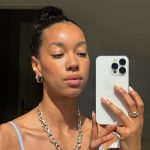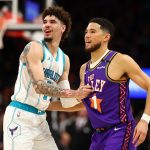RELATED: One third say ABC is out of touch with ‘ordinary’ Aussies
RELATED: ABC asks if chess is ‘racist’ because ‘white always go first’
She also denied any suggestion the guidelines were inconsistent with merit-based hiring practices. “There are really talented people from very diverse backgrounds out there – actors, crew, everyone – and we just need to make space for them in this industry and give them an opportunity,” she said.The ABC claims the guidelines will “deliver outstanding content to audiences by requiring production companies to provide greater access and opportunity to under-represented people and perspectives – on and off screen – including gender diversity, Indigenous Australians, culturally and linguistically diverse communities, people living with a disability and the LGBTQI+ community”.It says its “commitment under its Charter to reflect the cultural diversity of the Australian community” is “exemplified” by programs such as Total Control – a political thriller about an Indigenous Senator – and First Day, which follows a “12-year-old transgender girl (as she) begins her first year of middle school while trying to live as her authentic self”.“Diversity and inclusion are at the heart of everything we do at the ABC,” Michael Carrington, director of the ABC’s entertainment and specialist division, said in a statement on Monday.“As a public broadcaster, we must reflect the audience we are serving and a broad range of perspectives, people and stories makes us stronger, more creative and better able to engage with and reflect the Australian community.”Mr Carrington said while the broadcaster already prioritised diversity and inclusion, “this is the first time we have prescribed guidelines to track progress towards our goal (under the 2020-2025 five-year plan) of looking and sounding like contemporary Australia”.The guidelines, under a section titled “What does it mean to look and sound like Australia today?”, note that according to Australian Bureau of Statistics, only 3.3 per cent of the Australian population is Indigenous, 11 per cent identify as LGBTQI+, 22 per cent speak a language other than English and one fifth are living with a disability.“We’ve already taken steps in this direction but we need to do more to better reflect the wonderful diversity of this nation in an authentic way,” Mr Carrington said.“The ABC’s new guidelines, alongside industry-wide initiatives through screen agencies and the Screen Diversity Inclusion Network, will help bring new voices, cultures and perspectives to audiences. We will work with our production partners to make the industry a more inclusive workspace, by opening the doors to diverse creative talent, on and off screen.”
RELATED: ABC facing harsh backlash over claims of lack of diversity
Under the guidelines, producers will need to submit a “diversity and inclusion plan” as part of the commissioning process demonstrating how their content “meets at least one of the on-screen options” regarding “what the program is about AND/OR who is on-screen”, diversity off screen, and how the company “will create practical opportunities” for career progression for under-represented groups.Evan Mulholland, director of communications at free market think tank the Institute of Public Affairs, said the ABC’s “contribution to sense of national identity is exactly the kind of national identity you’d expect from people based at Ultimo and Southbank”.“The ABC likes to promote every type of diversity other than diversity of opinion,” Mr Mulholland said.“On every major issue, from the lockdowns to climate change to Australia Day, the ABC presents only one point of view. The ABC is too focused with what divides us, rather than what unites us. It is obsessed with identity politics. The ABC has banned conservatives from appearing on some of its programs which shows what they think about millions of mainstream Australians.”The IPA has long advocated for the $1.1 billion-a-year public broadcaster to be privatised, claiming it does not represent the views of ordinary Australians and is biased to the left.In 2019, ABC chairwoman Ita Buttrose said in an interview with ABC Radio Melbourne that “sometimes I think we might be biased” and that the broadcaster could “do with more diversity of views”.She later appeared to backflip on those comments, however, claiming in an interview – also on the ABC – with One Plus One host Jane Hutcheon that she had actually been referring to cultural diversity.“I think we all know what we mean about diverse views — that’s as many views as possible on the ABC,” she said. “Now that could be people who are Australian, people who are British, people who are Chinese, people who are Middle Eastern, you know, diversity covers a lot.”Ms Buttrose said the aim was “to represent the Australian society as it is”, recalling how she visited a lot of schools when she was Australian of the Year and “when you look at the playground you can really see how culturally diverse we are”.“That’s the kind of Australia we have to reflect at the ABC,” she said.
frank.chung@news.com.au
Powered by WPeMatico






